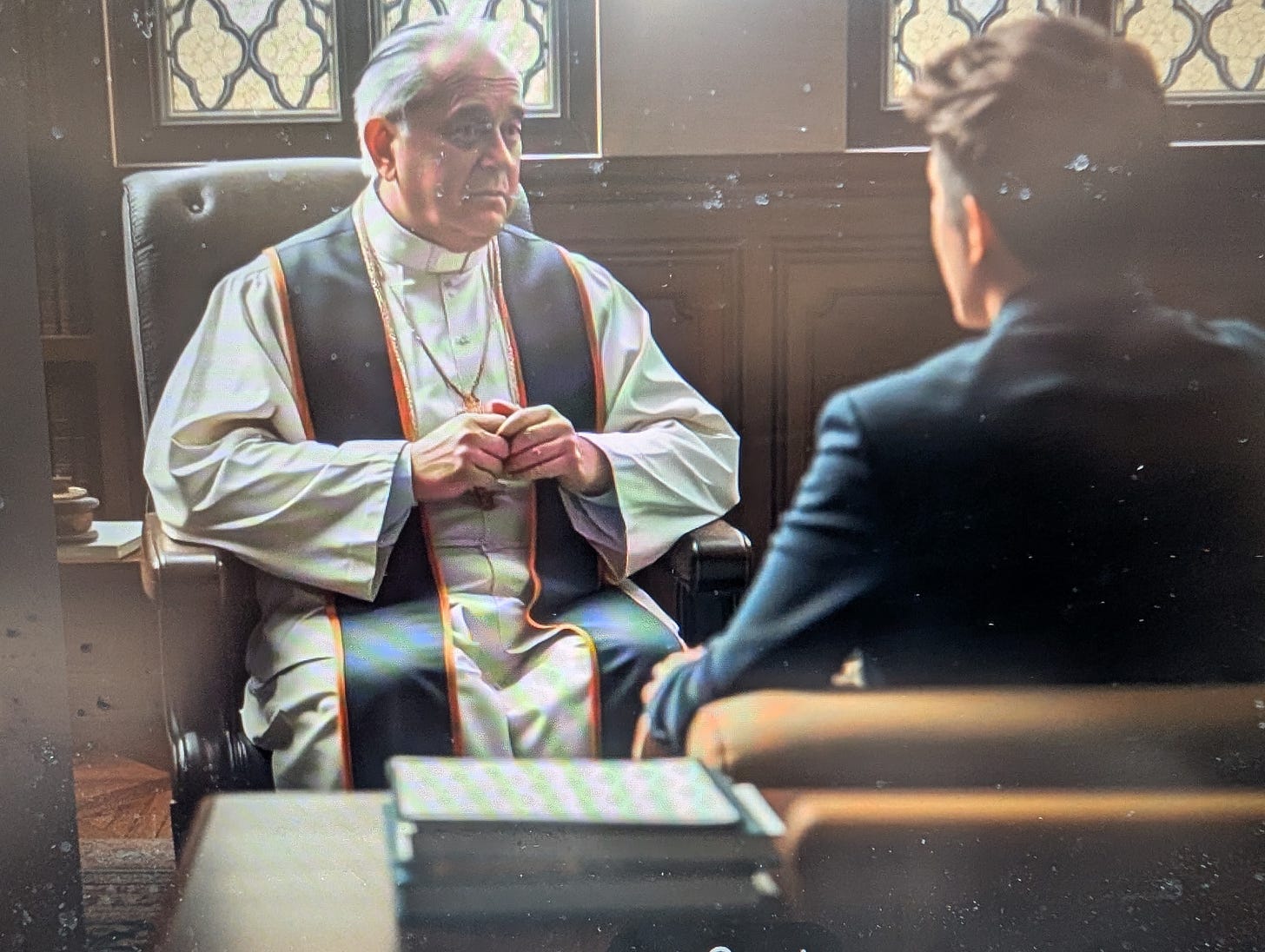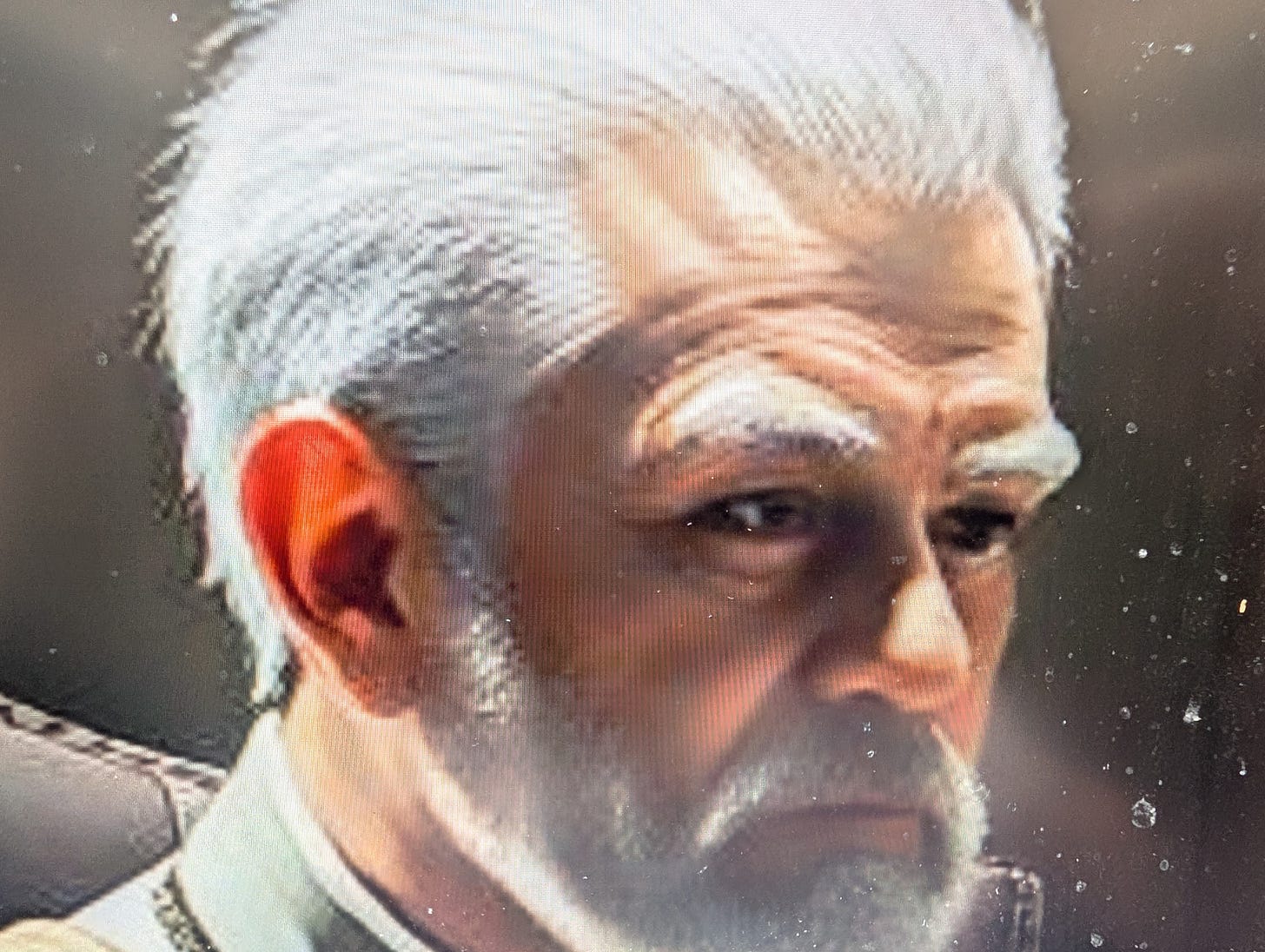How a wayward priest steered me down a dark path
a passage from my newly-released THE SECRET LIFE OF AN ALT-RIGHT 'OPERATIVE'
The following is a passage from my newly-composed, tell-all memoir, The Secret Life of an Alt-Right ‘Operative’, which is currently available in paperback and on Kindle.
In the passage below, I tell how, during my teenage years, a carefully appointed Jesuit mentor convinced me to forgo joining the Church, and encouraged me to join the mysterious and powerful group called “the organization” instead.
As soon as I began to explore the possibility of converting to Catholicism, those assigned to steering my course onto the “path” made (I see this now) certain adjustments. There was, from their point of view, certainly no reason to panic, or to despair, or to abandon my cause.
After all, I was young, naive, insecure. And, as I discussed above, the Church has long been infiltrated by fellow adherents to the “path,” so it was no real problem to see to it that I encounter certain suitable “Catholics” to mentor me.
And, lo, it worked. I was in time convinced that one’s embrace of the Catholic faith needn’t exclude one from adhering to the “path,” which by this time had been introduced to me under several names, none of them final or definitive, because the cause into which I had been successfully enlisted never refers to itself by any final or definitive label. It doesn’t call itself “the Illuminati” or any other such dramatic, ominous, sinister-sounding appellation. At most, they refer to it as “the club” or “the organization” (it’s never even capitalized in writing), and their missions go under the heading of “the work.”
The female shrink whom I saw a couple more times after our initial session, perceived that my issues were largely related to spiritual matters, and moreover detected that my mind and heart were increasingly oriented towards Rome; thus, she duly handed me off to a colleague, a man who was a consecrated priest who had also obtained a doctorate in Psychology. He vaguely knew, or knew of, my father and his extensive locus of control research: “Essential work!” he pronounced approvingly.
Father Sebastian Flowers, PhD was an intensely studious fellow with a passion for “the work” which manifested itself, not in emotion-soaked harangues, but rather, in quietly-worded but ardently earnest declarations. He was a man who gave off a sense of true devotion, and just being in his presence inspired one to grow more devout, more loyal, and more dedicated to the greater good.
It was Father Flowers (not his real name, but I must protect myself from possible retaliation, so I have bestowed upon him a sobriquet that is fitting), more than anyone else, who helped me to understand how one could be both a serious and observant Catholic, while also hewing closely to the dictates of the organization, which after all had assembled the finest minds in the world and intended to chart a course towards a better tomorrow.
True, the organization had to work in secret, and was often forced to carry out its operations in stealth, and even had to practice deceit and misdirection much of the time, but that was simply out of unfortunate necessity. The fact was, most of humanity just wasn’t ready for what the organization had in mind, but in time they would understand why our machinations were truly for the best.
“We would be letting down our fellow man, if we were to let up, or grow complacent, and cease to care about the work,” Father Flowers once told me.
But did the ends justify the means? As an adherent of Kant’s “categorical imperative,” at least as I understood it from my private research, I disliked the idea of ever treating other human beings in an instrumental manner; it smacked of manipulation. Father Flowers heard me out, did not object, nodded solemnly, took my concerns seriously... and without fail, managed to supply a retort which put my mind at ease. It was truly a gift that he had.
One metaphor utilized by Father Flowers (a Jesuit, by the way, which perhaps isn’t terribly surprising) compelled me greatly. I will quote him from memory, to the best of my ability, based upon my recollection of his words.
“Think, Andy,” he said, “about how God treats his creation, especially those of us who are created in his image and likeness. How can any of us truly understand the workings of divine providence? Scripture instructs us that God sends rain to fall upon the just and the unjust alike, which is true, but in truth it goes much deeper than that... Things happen that plainly seem to suggest either that God doesn’t care, or that his intentions could even be positively malevolent... However, we believers, we know otherwise. Rooted in our faith is the conviction that God causes all things to happen, or at least allows them to happen, in order to achieve the best possible ultimate outcome, even if his ways are totally inscrutable to us. A man, for example, who loses his whole family in a tragic automobile accident, may find it hard to forgive God for having committed such an atrocity against those whom he loves most, and he may consequently hate God. Yet you and I and all believers know that for everything we must suffer at the hands of God, God in truth suffers with us; all of the evil that is done unto the ‘least’ of his creation is in fact done unto him...
“It is (he continued) a paradox, difficult to reconcile intellectually. Yet those of us who are convicted by faith, those of us whose hearts belong to Christ, we know the truth. God takes no delight in our pain; again, he suffers with us... Now here’s where you need to stick with me, Andy. Again, it is a perspective rooted in a seeming paradox, but the difficulty of that paradox is ameliorated by the self-sacrificial love of Christ. Every instantiation of an evil done to a person, be that evil natural or man-made, is redeemed by the pain suffered by Our Savior, the God-made-flesh, during his Passion, his scourging, his crucifixion, his death upon the Cross...
“Now, God created man in his image and likeness. This does not make us God, of course, but it does mean that we are endowed with what could be called a certain divine embedment, or endowment; through being endowed thusly, we have authority to do various things that could be seen as “God-like,” such as assuming dominion over creation, a prerogative cited specifically in Genesis 1: 26-28... It then follows that those whom God has created with the natural ability to be leaders of humanity, such as those who have found their way into our organization, are granted a similar sort of dominion, not just over creation, but over mankind, that is, over our own kind.
“We, those of the organization, must act in stealth and keep our actual aims hidden, in the same way that God himself hides his inexplicable ways and means from humanity. Just as we must trust God, even when we don’t understand him, just as a child must trust his or her parents, since they are adults and know best, just as a wife must trust her husband, who after all has the duty and the responsibility to lead in marriage, so the bulk of mankind must trust those who have been divinely endowed with leadership, which is to say, our organization...
“As for us, the intrepid leaders, we have a duty and a responsibility to exercise any and all means at our disposal to lead our charges-- that is, the mass of humanity-- in the proper direction. It is good and fit, and in no way violative of any natural law, that we do so. It is the equivalent of what used to be called the ‘white man’s burden,’ though now we now know that leadership transcends race or any other accident of birth. It is not merely skin-deep; rather, it is bone-deep. Each of us within the organization, regardless of our religious faith or lack thereof, perceives this as our calling. We ignore our calling at our peril... “
After that particular spiel, I was speechless. I had nothing to which to object; he had made it all make sense. Today of course I am aware of the numerous objectionable aspects of his professed perspective, but recall again my relative youth and consequent naivety...
Also, you must comprehend that Father Flowers was and is surely the most convicted person I have met in my life. The fact that he not only represented these views so articulately, but with such seeming certitude, surely played a major role in my rapid indoctrination. But to be perfectly honest, I was itching to be convinced that it was indeed good, proper, and fitting to regard myself as one whose place was amongst the elite, doing my part for the betterment of humanity through fidelity to the brotherhood of my fellow elites... Such hubris had been cultivated in me for some time, little to my knowledge and utterly outside of my awareness. Those whose job it was to brainwash had successfully done a number on me, had managed to make me want just what they wanted me to want.
And so, having been successfully won over by those who surely sought to shape my mind, heart, and body from early on, I now strode forth, with a righteous mission and an ecstatic sense of purpose, in the direction of my perceived destiny.
Purchase Andy Nowicki’s The Secret Life of an Alt-Right ‘Operative’ here.
Other passages from The Secret Life of an Alt-Right ‘Operative’ available to read on this page:
“How I rocketed to stardom in the ’90s”
“How I became a ’90s rock star”
“How I faced the perils of ’90s rock stardom”


